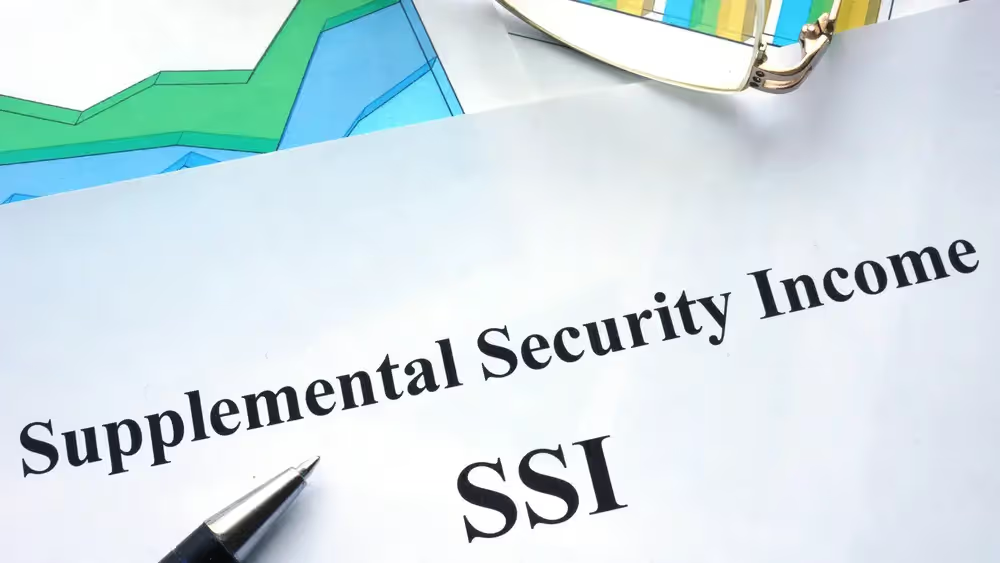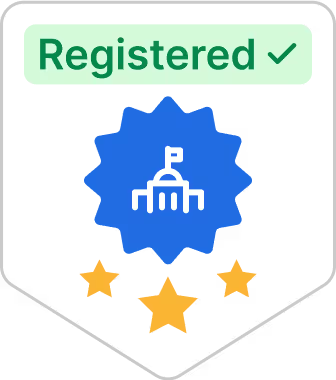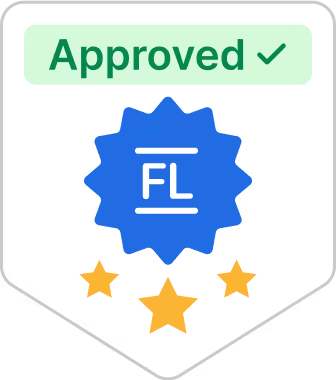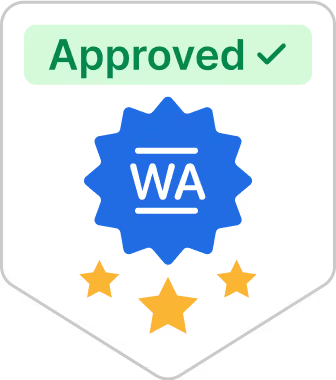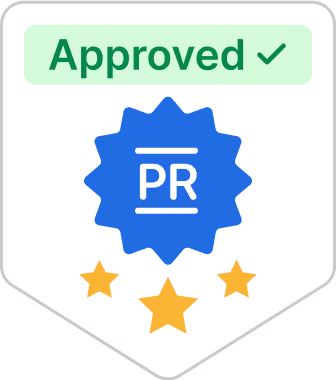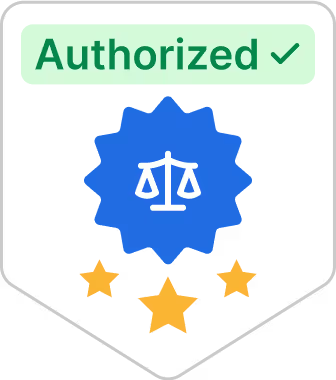How to apply for SSI: Everything you need to know

If you’re asking the question, “what is supplemental security income?”, you’re not alone. Supplemental Security Income (SSI) can be a lifeline if your ability to work is limited, and you find yourself in severe financial need. One of the many social programs administered by the Social Security Administration (SSA), SSI provides a monthly cash benefit to people who apply and are approved. There are different social security office locations that can help you with SSI.
However, getting approved for SSI and other programs, like disability insurance, can be challenging. Some people feel unprepared for the application process. By reading this quick guide, you can feel at ease knowing you have all of the information you need to maximize your chances of being approved as an SSI recipient.
Who is eligible for SSI?
SSI claims are judged on a case-by-case basis. However, as a general rule of thumb, SSI benefits are available to people over the age of 65 and disabled or blind people who are proven to be in financial need.
It’s important to consider that there are differences between SSI vs SSDI, despite their similar abbreviations. Unlike Social Security Disability Insurance (SSDI), SSI applications have no previous work history requirement. SSDI is funded through Social Security payroll taxes, so SSI applicants need to have worked a specific number of years in a tax-paying job. SSI, on the other hand, is funded directly from the U.S. Treasury, and you will not need to prove any employment.
Proving your limited income
Although it’s not necessary to prove that you have sufficient work experience, your income is still a very important factor when applying for SSI. Because SSI is strictly given to people in dire financial need, you will need to prove that you have a very limited income as an applicant.
As of 2020, the monthly dollar amount that the SSA defines as “limited income” is $783. If you earn more than this amount per month, you will not be able to receive SSI benefits. For a couple, this amount increases to $1,175 per month.
Countable resources
In addition to your monthly income, the SSA also takes applicants’ “countable resources” into account. Your countable resources are other financial assets you own or have access to that could disprove your financial need, even if your monthly income is limited. A few examples of countable resources include:
- Cash savings
- Stocks
- Bonds
- Property
This last example—property—is a bit more complicated. The SSA will factor your property holdings into an SSI claim, however, they will not factor in properties that are essential to your living. These include a home in which you reside, a car that you depend on for transportation, and other necessary items.
How to get SSI with a disability claim
If you have a certain medical condition that impairs your ability to earn a living, you can apply for SSI disability benefits. It is important to remember that SSI is not the same as SSDI. You do not need to have previous work experience to apply for SSI with a disability. However, if you do have recent work experience and you now have a limited income due to your medical condition, you may be able to qualify for both SSI and SSDI.
To prove that your medical condition is severe and impairing enough to qualify for SSI benefits, you will need to prepare the following:
- Names, addresses, and phone numbers of any doctors who have treated you
- Names, addresses, and phone numbers of any case workers you have met with
- A list of all the hospitals, clinics, and other healthcare facilities you have visited
- The names and dosages of any medications you have been prescribed
- Any medical records and laboratory test results you already possess
The SSA will use this information to determine if your medical condition meets their definition of disability. The SSA’s definition of disability is centered on your ability to perform work-related activities, such as sitting and walking for long periods of time, bending, reaching, lifting, communicating with others, and more.
The Blue book
The Blue Book is the common name for the SSA’s official Listing of Impairments. This is a comprehensive list of the medical conditions that can be approved for SSI and SSDI benefits.
The Blue Book contains hundreds of medical conditions separated into 14 categories of disorder, such as Respiratory System, Musculoskeletal System, Special Senses and Speech, Skin Disorders, and more. The Blue Book also has a second section that deals exclusively with childhood conditions.
If your certain medical condition is not listed in the Blue Book, you may still be able to qualify for benefits. Some conditions that do not always meet the criteria for disability can, in some cases, be severe enough to be approved for disability benefits. This kind of approval is called a medical-vocational allowance. Some conditions that have been approved for benefits through a medical-vocational allowance include:
- Back problems
- Obesity
- Hypertension
- Diabetes
- Fibromyalgia
- Arthritis
- Migraines
What are the benefits of SSI?
The main benefit of SSI is a monthly cash payment. The maximum benefit amount is equal to the standard for limited income. In other words, the maximum benefit amount is $783 for an individual, or $1,175 for a couple, as of 2020. The amount is subject to change based on economic factors, such as cost of living, inflation, and more.
This monthly cash payment is not the only benefit of SSI. If you are approved for SSI, you are likely eligible to be approved for other social programs.
Medicaid
Medicaid is a federal and state program that helps low-income individuals pay for their healthcare costs. It is similar to Medicare, although Medicare is strictly for elderly and disabled individuals. Some of the things that Medicaid can help pay for include:
- Copays when you get a bill from a doctor
- Fees when you visit a hospital
- Prescription medications
In many states, the SSI application actually is the Medicaid application, meaning that when you apply for one, you’re applying for both. In some states, the SSI and Medicaid applications are separate forms, but use the same criteria to judge your claim.
SNAP
If you are eligible to receive SSI, you are most likely able to enroll in the Supplemental Nutrition Assistance Program (SNAP). Millions of Americans get help paying for groceries through the SNAP program. You will receive cash benefits on an electronic card, called an EBT card. You can use this EBT card to buy select grocery items in any of the hundreds of thousands of retailers that are authorized to participate in the SNAP program.
How long is the waiting period for SSI benefits?
SSI claims have lengthy waiting periods. Typically, claimants have to wait several months to hear back. However, unlike SSDI claims, there is no mandatory five-month waiting period for SSI benefits. In certain cases, you can fast-track your SSI application.
How to speed up your SSI application
The most important thing you can do to speed up your SSI application is to include as much documentation as possible. That way, the SSA office can spend less time following up with you about your financial situation, and following up with your doctors about your medical condition.
Quick Disability Determination
According to the AARP, you may be able to qualify for SSI benefits more quickly if you apply online. This is because the SSA uses an electronic system called Quick Disability Determination (QDD) for online applications. QDD screens your application to immediately know if you have included all of the required documentation.
Additionally, QDD searches your application for keywords and phrases that demonstrate a very high likelihood that your claim will be approved. Claims that include many of these keywords and phrases are then marked for fast-track approval.
Presumptive Disability
There are certain medical conditions that the SSA determines a presumptive disability. If you have one of these conditions, the SSA will give you up to six months of benefits while your application is still in the process of being officially approved. Some of these conditions include:
- Amputation
- Down syndrome
- Total blindness or deafness
- HIV / AIDS
Although Social Security cards never expire, they can be very tricky to replace if you lose it. With us, you can replace or change the information on your Social Security card without leaving your home. Our smart, patented technology combined with our stellar customer service team can simplify the process. Just answer a few questions and we will mail all the paperwork right to your door so you can leave the crowds, long lines, and worries behind. Simplify the process and apply for a social security card online with GOV+.
Sources:
- AARP. What medical conditions make you eligible for a fast-track decision on Social Security disability benefits?. https://www.aarp.org/retirement/social-security/questions-answers/ssa-disability-fast-track-decision/
- Disability Care Center. SSA Blue Book Listings. https://www.disabilitycarecenter.org/medical-qualifications/ssa-blue-book/
- A Disability Lawyer. WHAT IS A MEDICAL VOCATIONAL ALLOWANCE? https://adisabilitylawyer.com/what_is_a_medical_vocational_a/
SSA. You May Be Able to Get Supplemental Security Income (SSI). https://www.ssa.gov/pubs/EN-05-11069.pdf







